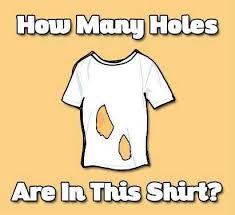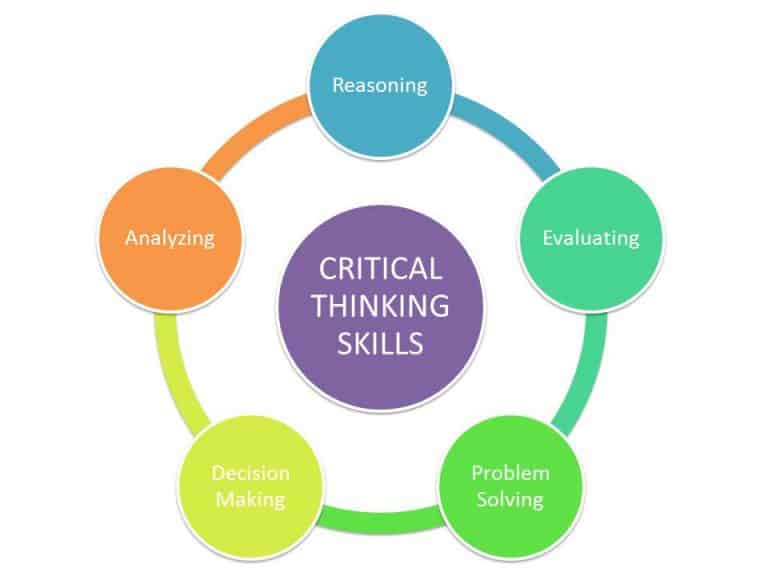Interview questions that test analytical skills can be difficult to create. We know – we’ve designed an entire platform around assessing analytical skills for programmers, data analysts, data scientists and data engineers. Some candidates have the technical skills and experience but might not have the analytical and critical thinking skills to be successful in a role.
Figuring Out Which Candidates Have The Right Technical Skills
That’s where analytical interview questions that assess analytical and problem-solving skills come in.

What are Analytical Skills?
In every data-related job role today, and even non-technical job roles, you will see “strong analytical skills” or something of that nature listed as a requirement. Here’s an example from a job posting on our website for an Analytics Consultant role.
The definition of analytical skills may differ according to the job at hand and may touch a wide variety of situations. The type of “analytical skills” we are referring to in this article does not involve the use of data analytics tools, but rather the process of analytical thinking and reasoning.
Analytical skills encompass a candidate’s ability to break down a complex problem and associated data and apply critical thinking to solve the problem or make a decision. Critical thinking, reasoning and problem-solving are closely associated with analytical skills.
Analytical skills involve deductive reasoning and inductive reasoning. Deductive reasoning is the process of reaching a conclusion based on one or more givens. Inductive reasoning involves taking specific data or information and making predictions based on that.
Those with strong analytical skills will consider how key elements within disparate information relate to one another and are more likely to notice crucial patterns and details.
Characteristics of Analytical Questions Interviews
When creating a line of analytical skills questioning for interviews, you’ll want to craft questions that help you find out among other things:
- How and why a candidate would gather data from different sources
- Their approach to evaluating that data and information, especially in light of gaps or challenges
- Their thinking behind how to communicate results of evaluations and key findings
- Their critical thinking process behind making judgments that will help the business
First and foremost, analytical skills assessments should be challenging. They should provoke introspection and thoughtfulness on the part of the candidate. And yes, the questions should make the candidate squirm a little. After all, when on the job they are sure to meet with difficulties and you want to know how they will handle these in advance.
Analytical skills interview questions go beyond pure job skills and experience. They evaluate a candidate’s ability to assess the impact of their actions and decisions.
One popular type of interview question is “behavioral”. These types of questions are geared towards discovering how a candidate handles pressure, stress or conflict. An interviewer will ask the candidate to describe a troubling situation and how they handled the problem. In doing so, they hope to gain insight into the candidate’s thought process and approach to problem-solving, what role they play in results and decisions and their understanding of the impact.
Remember, there is no right or wrong answer to these questions. You are looking for how a candidate responds to a situation or problem.
One thing that analytical skills interview questions are NOT is a series of brain-teasers. Brainteaser questions are all the rage in technical job interviews these days. These kinds of questions simply do not measure a candidate’s ability to problem-solve or think rationally and critically. Nor or they a measure of success on the job.
While analytical skills are required for many types of jobs, in this article we focus on data-related job roles and the types of analytics skills questions you might want to ask of candidates for data science, data engineering, data analyst and machine learning roles.

Brainteasers such as this one do not assess critical thinking. (Courtesy of Analyticsvidha)
10 Analytical Questions in Interviews for Data Science Roles
Analytics skills are part and parcel of the data science process. Anyone working on a data science or advanced analytics team must demonstrate intellectual curiosity, comfort with uncertainty and an ability to apply rational critical thinking to solve problems.
So what types of questions might you ask to assess these traits?
We’ve put together a list of 10 example questions:
1. Tell me about a time when you had multiple important projects to finish and how you prioritized them.
This question provides an overview as to how a candidate weighs different factors and information, their approach to analyzing them to determine priorities and outcomes.
2. Imagine a situation in which a teammate wants to solve a problem in a certain way, but your boss has a very different approach in mind. Your colleague comes to you asking for help in deciding on the right approach. What do you do?
This question examines multi-layered analytical thinking. The candidate must weigh a number of possible factors and outcomes and do a bit of scenario analysis at a technical, professional and business impact level.
3. What do you think are the criteria to say whether a developed data model is good or not?
This question combines a bit of analytical thinking as it would apply to the job at hand allowing you to assess technical skills as well.
4. When do you think you should retrain a model? Is it dependent on the data?
As with the previous question, this open-ended question will give you insights into 0n-the-job critical thinking and associated decision-making skills.
5. How do you identify a barrier to performance?
This simple question reveals how a candidate would approach a real-world problem on the job. It will also give you insight as to how a candidate defines personally what a challenging situation is.
6. How do you clean up and organize large datasets?
The answer to this question will reveal a candidate’s ability to organize and think about an approach to work based on their knowledge and judgment of what it will take to analyze data and information accurately and meaningfully.
7. Why are you interested in analytics?
The answer to this question will likely reveal the building blocks of a candidate’s approach to problem-solving and critical thinking and how far they are willing to go to solve problems.
8. How would you come up with a solution to identify plagiarism?
This kind of question will give you an insight both into technical ability and a candidate’s ability to use those skills to solve an open-ended problem.
9. What are the steps in a typical analytics project?
This question won’t necessarily give you deep insight into a candidate’s thought process, but it will allow you to evaluate if they have a process at all. You can ask further questions with some of the steps they enumerate to gauge analytical skills.
10. Provide a real-world challenge from your company and ask the candidate to solve it.
There’s nothing more revealing about a candidate’s analytical thought process then observing how they apply it to a real-world situation, especially one that impacts your company. For this reason, real-world challenges are core to QuantHub’s platform.
Criteria for Evaluating Answers to Analytical Interview Questions
When interviewing for data-related roles, you will want to look for candidates to provide examples of problem-solving methods, to describe what steps they take to identify barriers to achieving their goal, and use of benchmarks or comparisons to judge their decisions and the impact of their approach and actions.
Candidates should also exhibit good and fair fact-based judgment in their conclusions and processes. They should also be able to envision a solution (s) to any problem and what the fall out from that solution might be.

Generally speaking, candidates who fall into the following traps should be questioned with respect to analytical capabilities:
- Lack of fact-checking
- Too many assumptions
- Not enough creative or lateral thinking/tunnel vision
- Difficulty explaining a specific approach and technical details of their approach
- Don’t dig deep enough into a problem and ask questions for clarity or more information
- Can’t provide examples of analytical skills from previous experience or don’t use the whiteboard when appropriate to demonstrate skills
The Bottom Line on Analytical Interview Questions
As a recruiter or hiring manager, or even as a candidate, it’s critical to recognize that while technical skills are a core component of performance in data science roles, these can be learned. What is more difficult to learn on the job however are the kinds of analytical skills described previously.
So be sure to include analytical interview questions that get to the heart of a candidate’s ability to solve your business problems rationally and responsibly.
